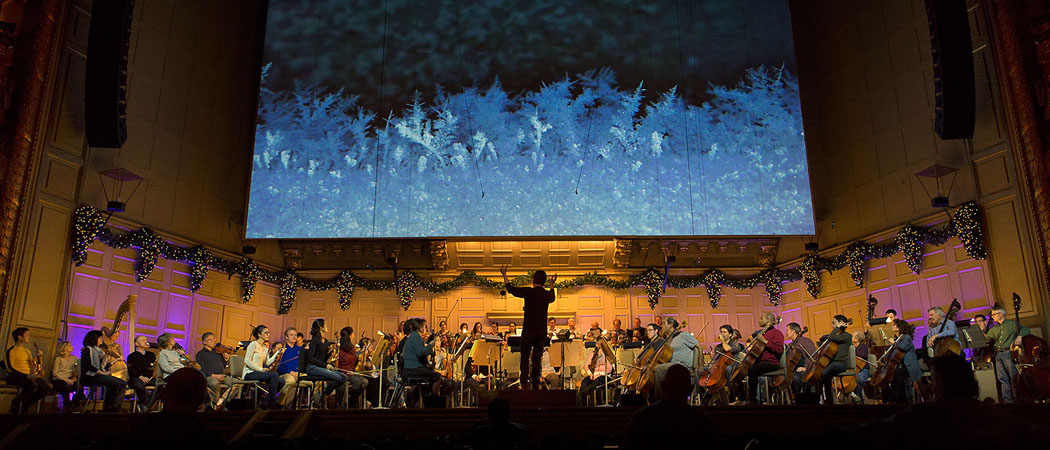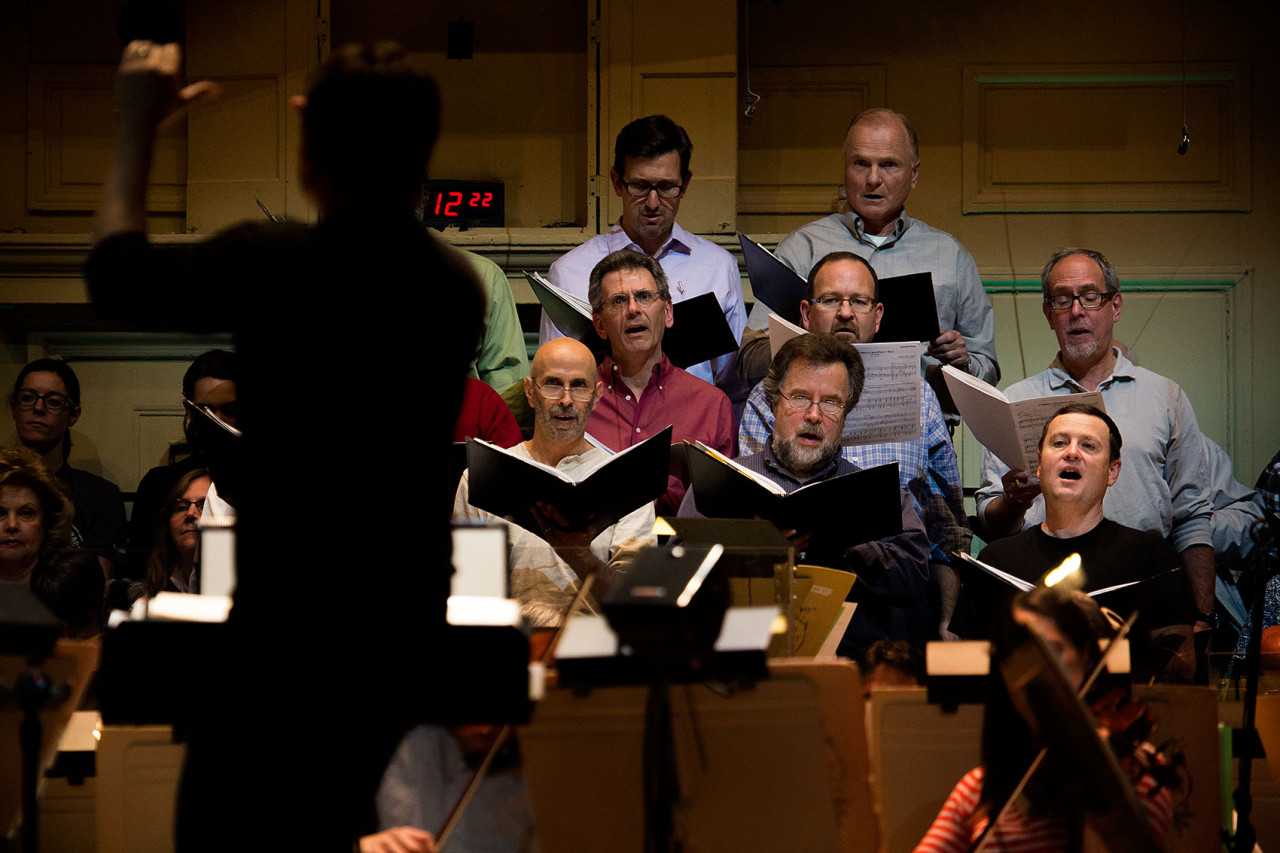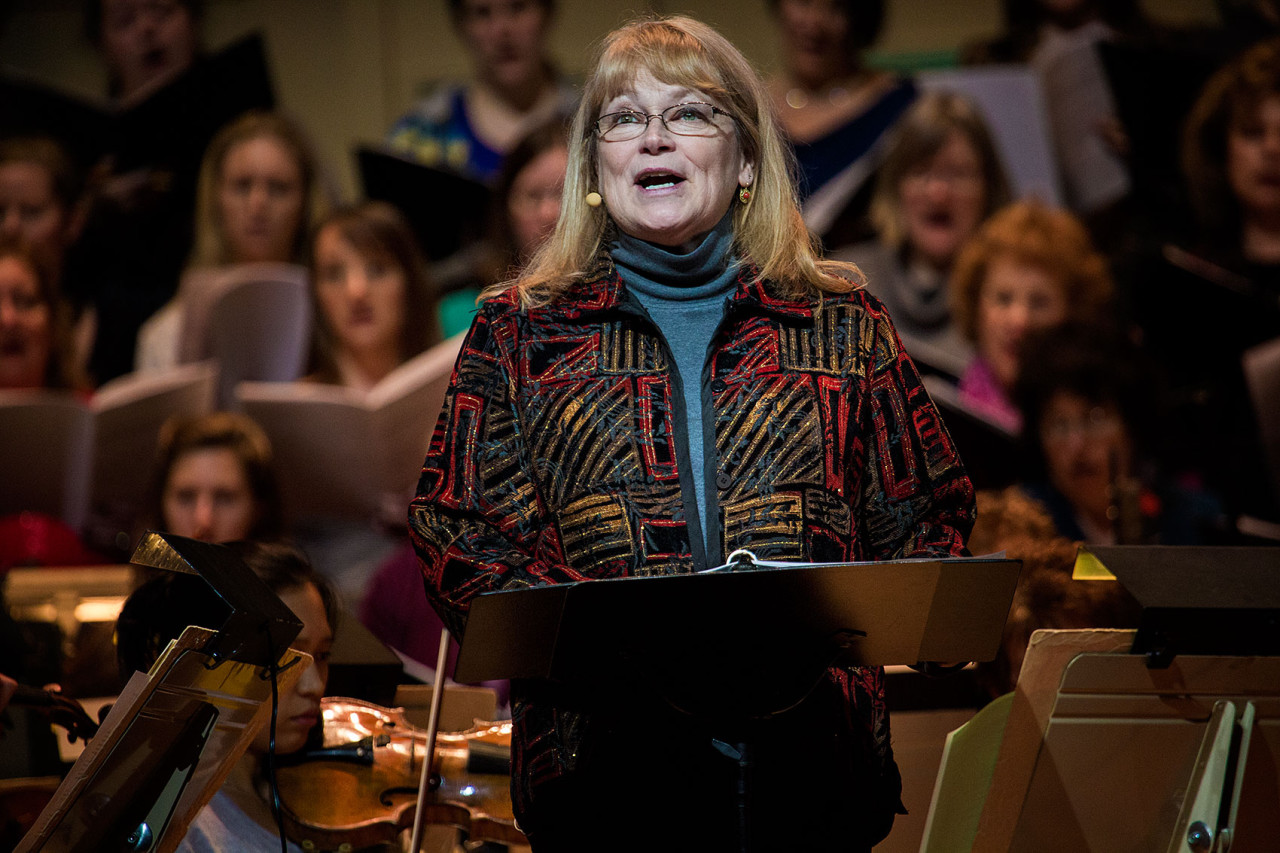Advertisement
Stop Fighting And Sing: The 1914 Christmas Truce Is Set To Music At Symphony Hall
Resume
Audiences who come to see the Holiday Pops can usually expect jaunty chestnuts like “How the Grinch Stole Christmas” or “The Polar Express.” But this year conductor Keith Lockhart was stirred by a bittersweet episode from history: an impromptu and unsanctioned ceasefire that took place during World War I.
"The particular thing about this story is that the uniting force, the thing that brings people together, is music," Lockhart explained.
To mark the 100th anniversary of the Christmas Truce of 1914, the Boston Pops commissioned a new narrated work that combines words and music to tell the story of that famous display of humanity.
"The first few months of World War I were some of the bloodiest of that entire conflict, one that eventually claimed 16 million lives," Lockhart said, setting the now infamous scene. "After two or three months of fighting both sides were basically entrenched in Flanders Field, separated by mud and dead bodies."
But on Christmas Eve something remarkable happened after the war-weary British soldiers noticed strange lights flickering on the German side.
"They peeked cautiously over the trench and saw that the German soldiers had put out Christmas trees lit with candles," Lockhart said, "and then a German soldier started singing 'Stille Nacht.'"
The moment is portrayed in the 1969 film, "Oh What a Lovely War" and 2005's "Joyeux Noel." In both, as in reality, British soldiers laid down their arms to join in the singing. French fighters added their voices too.

Now the ceasefire is captured in “A Soldier’s Carol,” the work Lockhart commissioned from Broadway writers Lynn Ahrens and Stephen Flaherty. The team clearly has a thing for historic tales, as evidenced by their Tony Award-winning musical "Ragtime." Also (for those of us, perhaps, from a certain generation) Ahrens helped create "Schoolhouse Rock!" the now iconic animated educational TV series from the 1970s.
"I actually thought that it was a fable, I didn’t realize it was a real incident," Flaherty said of the truce. For the Pops commission, he and Ahrens crafted a nine-minute work for choir, orchestra and narrator.
"It starts out very joyously for maybe four measures," Flaherty laid out, "and then it goes to a very dark place because it’s really set on the field of war, where the war happens, in the trenches."
Longtime Boston-based actress Karen MacDonald was cast as narrator.
On stage she tells the audience, "Imagine a landscape of mud. Nothing but mud, as far as the eye can see. A no-man’s land of black rats and unrelenting rain, barbed wire and the shapes of fallen soldiers."
Soon, a chorus member playing the lone German soldier stands to sing. Then his enemies join in.

"They did that throughout the night, and then on Christmas Day they came out of their trenches, helped each other bury one another’s dead, and then they traded gifts, they played football," McDonald said off stage. "It’s amazing to think that in all of that chaos and death that they had a moment to stop and celebrate Christmas."
On the battlefield the soldiers sing “Silent Night,” “Oh Come All Ye Faithful” and “Oh Holy Night.” Those carols are woven through the fabric of the new work, and Flaherty hopes audiences will hear those classics differently.
"I think it’s a meditation on war, meaning what pulls people apart and what potentially can hopefully bring them together," Flaherty reflected.
In reality, the Christmas Truce was short-lived, though. And the fighting resumed.
"There will always be wars, there will always be conflict, there will always be hatred in the world," Conductor Lockhart said. "But what this story shows is that there will always be a glimmer of hope, a yearning by mankind to do something better."

